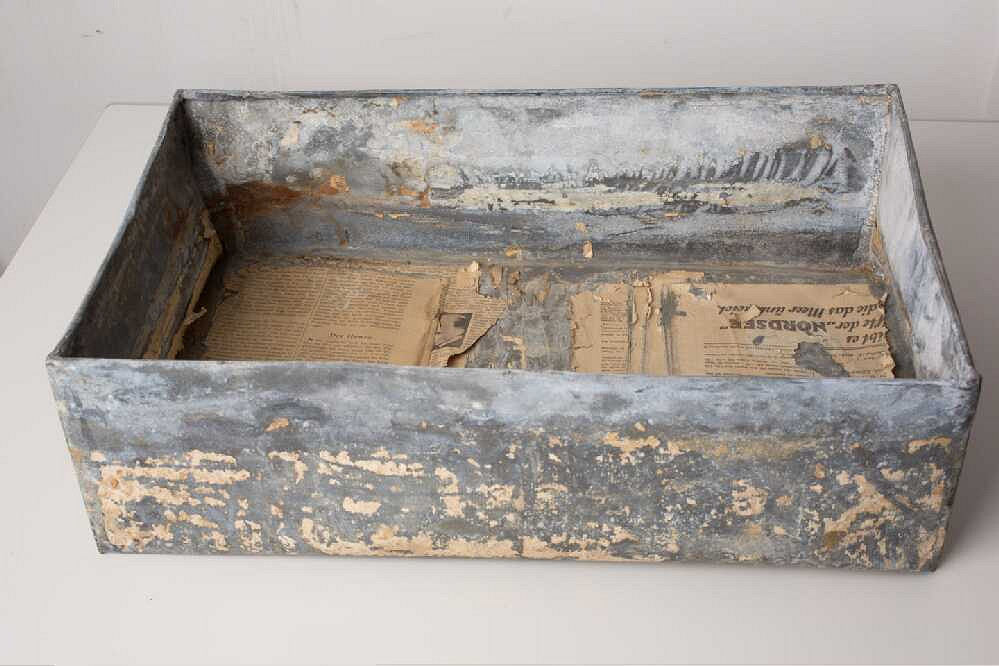The Underground Archive of the Warsaw Ghetto
The Underground Archive of the Warsaw Ghetto, the so-called Ringelblum Archive is a unique collection of documents that are one of the world’s most significant testimonies about the extermination of Polish Jewry.
It was created in November of 1940 at the initiative of historian Dr. Emanuel Ringelblum and with the involvement of the Oneg Shabbat (Joy of the Sabbath – because of their Saturday meetings) organization created by him. The group numbered several people and undertook the task of gathering and developing documentation — broadly defined — on the fates of Jews under the German occupation. The activity of the Oneg Shabbat was completely secret. The inhabitants of the ghetto did not know about it. As a cover for their activities Oneg Shabbat used the Jewish Social Self-Help (ŻSS), a social-service organization tolerated by the Nazis, but also leading considerable underground activity. The ŻSS office was located in the building of the Main Judaic Library, next to the Great Synagogue at Tłomackie St. That building since 1947 has been the Jewish Historical Institute headquarters and the storage site of the Ringelblum Archive.
When, at the beginning of 1942, the first news of the mass murder of Jews reached Warsaw, the activity of Oneg Shabbat underwent reorientation. Instead of collecting materials for a broad monography on the lives of Jewish people on the Polish soil, the group started documenting the destruction of further Jewish communities and relaying this information to the public. The organization maintained contact with the Polish resistance movement (including the Government Delegation for Poland) and provided it with copies of gathered documents. In 1942, through Polish and Jewish organizations, the Holocaust reports of Oneg Shabbat found their way to the West.
Oneg Shabbat worked using modern methods of collecting scientific materials. Reports and studies were written based on surveys and outlines previously prepared by the group. The group took care to have the collected material show a complete and objective picture of reality, with all the facts and details. For selected towns, they tried to collect various types of documents and reports. They were making notes from interviews conducted, on the basis of which they later wrote wider reports. Both original documents and copies with their detailed descriptions were appended to the collection.
Records of official institutions, as well as press, posters, flyers, tickets, invitations, food stamps, correspondence flowing into the ghetto, personal documents, personal journals and diaries were gladly accepted. Many members of the Oneg Shabbat were dedicated activists of underground political parties. Thus, there found their way to the Archive documents of the underground conspiracy movement emerging in the Warsaw ghetto. There are also in the Archive dozens of photographs and more than 300 drawings and watercolors (some of them made before the war).
Emanuel Ringelblum and most of the Archive’s creators did not live to see the end of the war. Those who survived made the effort to find the archives. In September 1946, the first part of the Archive was unearthed, the second part was come upon by chance in December 1950. Until today, the third part of the Archive, which was to be hidden on 19 April 1943, the night before the outbreak of the uprising in the ghetto, in the brushmaking workshop near the 34 Świętojerska St. (today, the Chinese embassy grounds), was not found. The majority of the documents, despite having rested in the earth for a few years, were preserved in their entirety.
The materials collected usually do not have counterparts in other archival units in the world. They are often the last testimonies of life, suffering and death of both individuals and entire communities of cities and towns scattered throughout the country. They constitute an invaluable source for Holocaust study.
From the end of the 20th century until the beginning of the 21st century work has been carried on on the preservation and digitization of the documents of the Archive. In the years 2001 – 2003, a new inventory of the collection was put together. The Ringelblum Archive for over 60 years has been used by historians and yet still the lion’s share of it is little known and requires detailed study. Only a full edition of documents from the Oneg Shabbat collections started in the years 1997 – 2000 and, after a break, continued since 2011, opens new opportunities for Holocaust researchers.
This text was developed based on Prof. Tadeusz Epsztein’s text written for an exhibition dedicated to the Ringelblum Archive, displayed at the JHI in early July 2012.

On 18 September 1946, in the afternoon, ten metal boxes with the first part of the Archive were unearthed.




